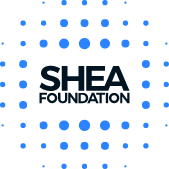Submit Proposal
Instructions
All materials must be submitted together for review. Incomplete applications will not be considered.
Required components (see below):
- 1-page concept description (see below)
- Half-page funding description (if applicable; see below)
- Draft recruitment or survey request
Proposal evaluation criteria:
- Alignment with SHEA’s research priorities:
- HAI Research Agenda (2024)
- Antibiotic Stewardship Needs (2019)
- Scientific quality and completeness
- Burden on SRN facilities
- Priority for early-stage investigators (within 10 years of training completion)
All applicants receive summary feedback and de-identified evaluation scores.
Fee structure:
Fees cover review and SRN solicitation only (no admin or data support).
| Submission Fee | Full Fee | Reduced Fee* | |
| Government or non-profit funded research | $50 | $1,800 | $600 |
| For-profit funded research | $250 | $4,000 | $3,000 |
| Unfunded research** | $0 | $750 | $0 |
*Reduced fee eligibility:
- Active SRN site participation
- SHEA research award recipient
- Recruitment-only study vetted by credible body
**Unfunded research:
- Unselected proposals may roll over or be revised for future cycles.
- Donations to the SHEA Foundation are encouraged to support the work of the SRN
- Researchers will be considered for one unfunded study per SRN cycle to allow equal opportunity for all those interested in utilizing the research network.
1. Concept Description
(1 page)
Investigators
Principal Investigator
- Contact information (name, title, affiliation, city and state, email)
- SRN ID (at least one investigator should be an active member of the SRN)
- Bio (no more than 250 words)
- Conflict of interest disclosure, as relevant to the proposal
- Supporting materials, if applicable (e.g. letter of support, documentation of being a recipient or finalist for a SHEA research grant or award)
Co-Investigators
- Contact information: name, title, affiliation, city and state, email
- SRN ID(s) (at least one investigator should be an active member of the SRN)
- Conflict of interest disclosure (relevant to proposal)
Project
Study Concept
- Project title
- Statement of problem or question
- Hypothesis to be tested (if applicable)
- Description of project goals
- Primary endpoint
- Potential outcomes of study
- Long-term goals of study
Methods
- Statement of proposed methods and involvement of the SRN
- Reason for choosing the SRN
- Who should receive the survey or recruitment request, e.g., US-only, US and Canada, US and international, individual SRN facilities, SRN healthcare systems, pediatric-only, adult-only, specific requirements such as the presence of an ASP or use of NHSN
- For surveys, indicate whether PI(s) will use their own (e.g. RedCAP, Qualtrics, Survey Monkey) or SHEA’s platform (Alchemer)
- For recruitment requests, provide the background and description of study, description of participants’ roles and responsibilities, project materials (e.g., webpages, webinars), timeline, and if applicable, honoraria for participants
2. Funding Description
(if applicable: half a page)
- Name of funding source (foundation, company, governmental agency)
- Will funds be used to support SRN participants with the project (e.g. honoraria, raffle)?
- Will study data be used to apply for funding for a future project, or as part of a larger project to be submitted for funding?
3. Draft Survey or Recruitment Request
- SHEA sends projects to SRN sites using a standard SHEA-branded email.
- Provide draft email text for both survey and recruitment requests.
- While facility identities are not shared, SHEA can link responses to select facility-level data upon request (e.g., bed count, ICU types, FTEs, surveillance practices).
- Survey requirements:
- Use your own platform (e.g., Qualtrics, REDCap) and provide a universal survey link to SHEA.
- Personalized links are not allowed; researchers/institutions cannot send surveys directly to sites.
- Include a free-text SRN ID field as the first survey question to support de-duplication and reminders.
- Keep surveys brief (<15 questions) and focused only on necessary data.

